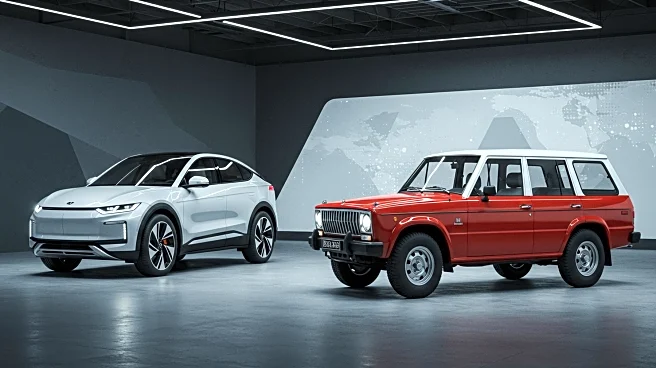What's Happening?
South Africa is witnessing a surge in interest from Chinese and Indian automakers, including Leapmotor, LDV, and Tata Motors, as they plan to expand into the country's automotive market. This development comes in response to strained trade relations with the United States, prompting South Africa to diversify its partnerships and reduce reliance on Washington. Leapmotor is set to debut its C10 extended-range electric vehicle in South Africa, while LDV plans to launch its Terron 9 bakkie at an upcoming automotive festival. Tata Motors is re-entering the South African market with a focus on SUVs, crossovers, and hatchbacks, partnering with local retailer Motus Holdings Ltd.
Why It's Important?
The expansion of Chinese and Indian automakers into South Africa highlights the shifting dynamics in global trade and the growing influence of BRICS nations in the African automotive sector. South Africa's established infrastructure and consumer demand make it an attractive market for new-energy vehicles and mass-market cars. This trend could bolster South Africa's role as a hub for automotive and electric vehicle manufacturing in Africa, potentially increasing its economic influence and creating new opportunities for local employment and industry growth.
Beyond the Headlines
The strategic partnerships with BRICS nations could enhance South Africa's position in the global automotive industry, providing a platform for further economic collaboration and innovation. As more manufacturers view South Africa as a gateway to Sub-Saharan markets, the country could see increased investment in its automotive sector, leading to advancements in technology and sustainable mobility solutions. This development also underscores the importance of diversifying trade relationships in response to geopolitical tensions and trade barriers.









